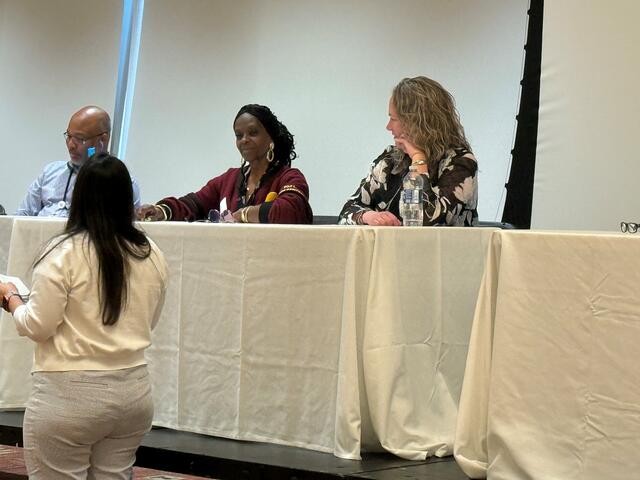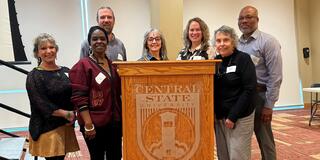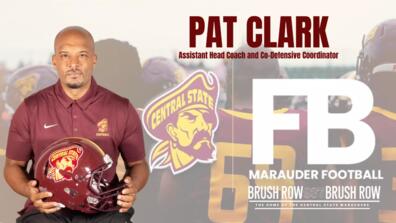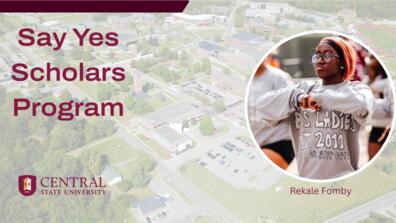
Rooted in resilience: Real talk on mental health, trauma, and healing at Central State University’s SOAR Summit

Expert panelists included (from left) Carrie Evans, Central State University Counseling Services Director Dr. Sonia Hunt, Braden Trauth, Linda Helm, Kelly Brown, Angela Anno, and Officer Brandon Cook.
Central State University recently hosted a powerful panel featuring mental health professionals, educators, and community advocates for an honest and heartfelt conversation about wellness, trauma, addiction recovery, and healing. The event was part of the State of Ohio Adversity and Resilience (SOAR) Study, a statewide initiative that explores the biological, psychological, and social factors contributing to emotional distress, suicide, and substance use.
Bringing together voices from across southwest and central Ohio, the panel illuminated the persistent challenges and the innovative approaches shaping the future of mental healthcare.
Serving with purpose
Across Ohio, professionals in mental health, education, addiction services, and law enforcement are asking: What needs to change to truly serve our communities? The panelists — all deeply committed to their fields — brought decades of insight and experience to this question.
Dr. Sonia Hunt, Director of Counseling Services at Central State University, highlighted the importance of truly hearing those in need. At Central State, that involves inter-departmental collaboration. “I would like to see more listening to the people that we serve,” she said.
“One of our goals is to develop a culture of care, not just for our students, but for the campus as a whole.” — Dr. Sonia Hunt
Braden Trauth, Assistant Professor of Industrial Design at the University of Cincinnati and founder of the Cincinnati Permaculture Institute, offered a perspective rooted in sustainability and mindfulness. Reflecting on his work with urban communities and students, he observed, “The world that we’ve designed is relatively brittle.” For Trauth, building resilience means creating a culture that equips people with tools to manage their minds amid uncertainty.
Linda Helm, who leads the University Partnership Title IV-E Child Welfare Training Program for social work students across Ohio’s public universities, emphasized that trauma is not just a clinical concern — it’s foundational to the work of future social workers. “Our students must be ready to serve families when they graduate,” she said. But many students also face personal trauma, making it critical to support them while preparing them to prop up others.
Angela Anno, a longtime advocate for immigrant and refugee communities, shared how healing often begins with a sense of belonging. As a pastoral associate at St. Leo the Great Church, she has helped foster a family-like environment. “When people came seeking refuge, we said, ‘Welcome,’” she said. “If we can pray together, we can do anything together.”
At Sinclair Community College, Assistant Professor Kelly Brown works closely with adult learners — many of whom are in addiction recovery or managing mental health challenges. “I want to see more access for those who want to help,” she said, emphasizing the need to accommodate different learning styles and life experiences. “We need to meet them where they are.”
Officer Bryan Cook, a retired sergeant with the Ohio State Highway Patrol and now a criminal justice commander at the Greene County Career Center, spoke passionately about the urgency of mental health support in law enforcement. “Officer suicide is on the rise,” he warned.
“We need mental health (services) on the front end, not after a crisis.” — Officer Bryan Cook
Private practice counselor Carrie Evans highlighted the critical need for better professional training. “The bar for becoming a chemical dependency counselor is too low,” she said. The consequences are dire: clients being retraumatized by underprepared staff. Her vision is for trauma-informed training to become standard for those in recovery — and the professionals who serve them.
Evans also underscored the growing crisis among youth. “Post-pandemic, everyone has anxiety. Parents don’t know what to do. Teachers are overwhelmed. Kids are in crisis.”
Across sectors, one message rang clear: Systems must evolve to be more compassionate, accessible, and truly responsive to the people they serve.
Stories of resilience and the healing power of connection
Despite the overwhelming challenges, stories of resilience and transformation emerged throughout the panel — powerful reminders of what’s possible when people feel seen, supported, and connected.
Dr. Hunt shared a poignant story from the pandemic. When traditional therapeutic methods failed to reach a student in crisis, she turned to a sensory-based intervention — giving the student an aloe plant. “You’re going to take this plant, and you’re going to make it grow,” she told the student. The student not only nurtured it but found purpose in creating haircare and skincare products from it. That student went on to graduate — and the plant now towers over them both if one were standing on top of the other, Dr. Hunt said.

Anno shared how Rwandan refugees — some having spent over 30 years in camps — rediscovered strength and identity through gardening. Adjusting to life in public housing and unfamiliar customs was daunting, but reconnecting with the land became a turning point. “It’s been very healing and gives them a sense of, ‘I know what I’m doing, and I’m OK,’” she said.
Trauth recalled the story of one man transformed by horticultural therapy.
“Every time there were rough patches in his home, he would go and sleep in the garden,” Trauth said. “He would also say how all his friends end up either in jail, pregnant with babies, or shot."
"And he was the only one who made it through because of that garden.” — Branden Trauth
Brown described the perseverance of her students in recovery, many of whom are returning to school after years — even decades — away. “They’re relearning how to believe in themselves,” she said. “That resilience is awe-inspiring.”
In law enforcement, Cook described the life-saving potential of empathy. He shared how a simple conversation during a routine stop once prevented a suicide. “You may not see the impact you have... but when they come back and say, ‘Hey, I appreciate you praying with me,’ that’s support.”
Helm noted how the mental health landscape has changed since she began teaching in the 1990s. “College students today have an enormous number of barriers and pressures,” she said. But many bring with them profound strength. “(Some) grew up in the foster care system, and they’ve absorbed resilience from every place they’ve been able to find it.”
Evans sees that same resilience in her youngest clients, even as they work through complex trauma. “Addiction and trauma recovery isn’t linear,” she said. “But people are working really hard — and they’re worth fighting for.”
Resilience, the panelists reminded us, is not about going it alone. It’s about being connected, being believed in, and being given the space to grow.
Editor’s note: Learn more about SOAR Studies and how you can be a part of this groundbreaking initiative at https://soarstudies.org/. You can read the 2024 SOAR Interim Report here.
To host your next event at Central State University, contact Sherri Boffman at 937-376-6140 or sboffman@centralstate.edu. For Central State University-Dayton events, contact Millie Smith at 937-376-6167 or mlsmith@centralstate.edu.


